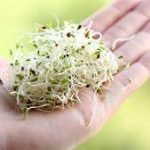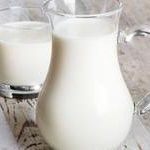History of Broccoli
Let’s focus on a more popular natural ingredient: broccoli. While the vegetable had popularity in Europe, and has been considered a uniquely valuable food among the Italians since the Roman Empire, broccoli did not become widely known in the US until the 1920s.1 In fact, the first commercially grown broccoli was grown and harvested in New York. It was then planted in the 1920’s in California, where it still continues to be one of the main primary production locations in North America.1
Health Benefits of Broccoli
Broccoli is a cruciferous vegetable, along with Brussels sprouts, cabbage, cauliflower, horseradish, kohlrabi, and leafy greens including collards, bok choy, watercress, and kale. Whether you love or hate this popular vegetable, there’s no denying its considerable health benefits within a balanced diet. Some might even consider broccoli a wonder food. All vegetables in this family contain high levels of vitamin C and cancer-inhibiting phytochemicals. Studies have found that vitamins in broccoli, like these phytochemicals, moderate the harmful effects of radiation, shrink tumors, and prevent the development of cancer in the first place. Past research has also established the vegetable as helpful in preventing cancer, macular degeneration, heart attacks, strokes, and complications of diabetes.3
Broccoli For Cancer Prevention
For instance, a study from UCLA4 discovered that eating four servings of broccoli a week reduced the risk of colorectal cancer by 50 percent. And a study at Georgetown University5 discovered that mice exposed to high levels of carcinogenic tobacco components were far less likely to develop lung tumors when administered broccoli-derived isothiocyanates. A follow-up study found that the isothiocyanates targeted and killed off cancer cells in lung tissue while leaving healthy cells alone. Yet another mouse study, from Gifu University6 in Japan, found that indole-3-carbinol — one of the phytochemicals in cruciferous vegetables — had strong anti-estrogenic properties and significantly reduced the incidence of endometrial tumors and cancers.
These studies are just the tip of the iceberg. Dozens of other studies attest to the powerful anti-carcinogenic and health-promoting effects of the nutrients in broccoli. As studies continue to attest to the benefits of this vegetable, it makes sense to try to include more of it in your regular balanced diet. While you may be increasing the amount of fruits and vegetables in your diet, the bottom line is that lettuce, corn, carrots, and peas make up a whole lot more of the fruits and vegetables consumed than super foods like broccoli and pomegranates. This is extremely unfortunate as, in addition to its numerous other health benefits, food like broccoli provides more protein per calorie than a lean steak. Note: that’s per calorie, not per ounce or pound.
Ways To Enjoy Broccoli
So, what’s the best way to eat and prepare this wonder food? To make the most of its benefits, steaming is the preferred method of cooking. The fiber-related components in broccoli do a better job of binding together with bile acids in your digestive tract when they’ve been steamed. When this binding process takes place, it’s easier for bile acids to be excreted, and the result is a lowering of your cholesterol levels. Raw broccoli still has cholesterol-lowering ability – just not as much.7 And another option is broccoli sprouts, which are extremely high in sulforaphane, an organosulfur compound that exhibits anticancer,8,9 antidiabetic,10 and antimicrobial properties.
References:
(1) http://en.wikipedia.org/wiki/Broccoli
(2) http://thinkexist.com/quotation/i_do_not_like_broccoli-and_i_haven-t_liked_it150717.html
(3) http://www.phytochemicals.info/plants/broccoli.php
(4) http://www.sixwise.com/newsletters/05/08/10/the_remarkable_anti-toxin_cancer-fighting_power_of_cruciferous_vegetables.htm
(5) http://www.webmd.com/lung-cancer/news/20050915/broccoli-may-fight-lung-cancer
(6) http://www.phytochemicals.info/research/indole-3-carbinol.php
(7) http://whfoods.org/genpage.php?dbid=9&tname=foodspice
(8) http://www.ncbi.nlm.nih.gov/pubmed/21159204
(9) http://www.ncbi.nlm.nih.gov/pubmed/21617865
(10) http://www.ncbi.nlm.nih.gov/pubmed/22023613








